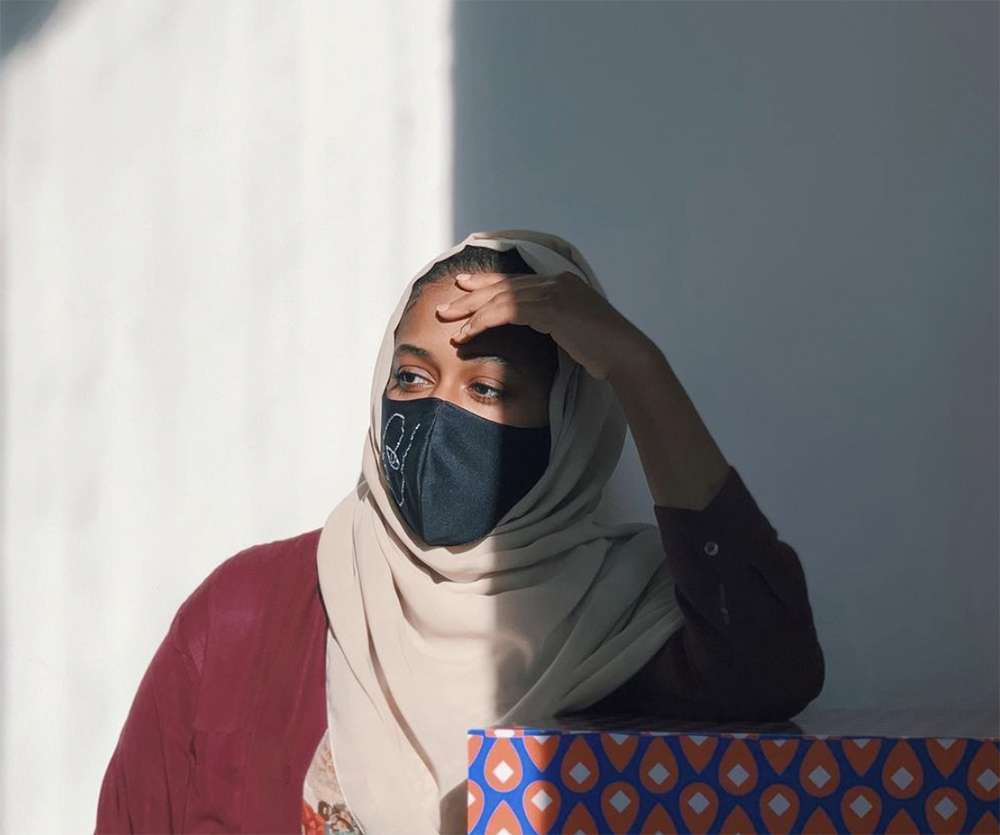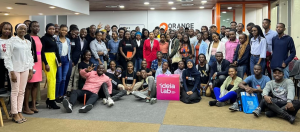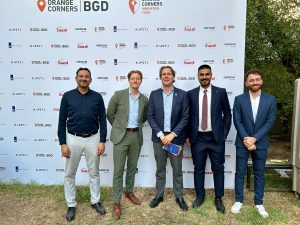I would like women to obtain their own training and production centre, creating something for themselves and thus attaining a higher and better quality of life.
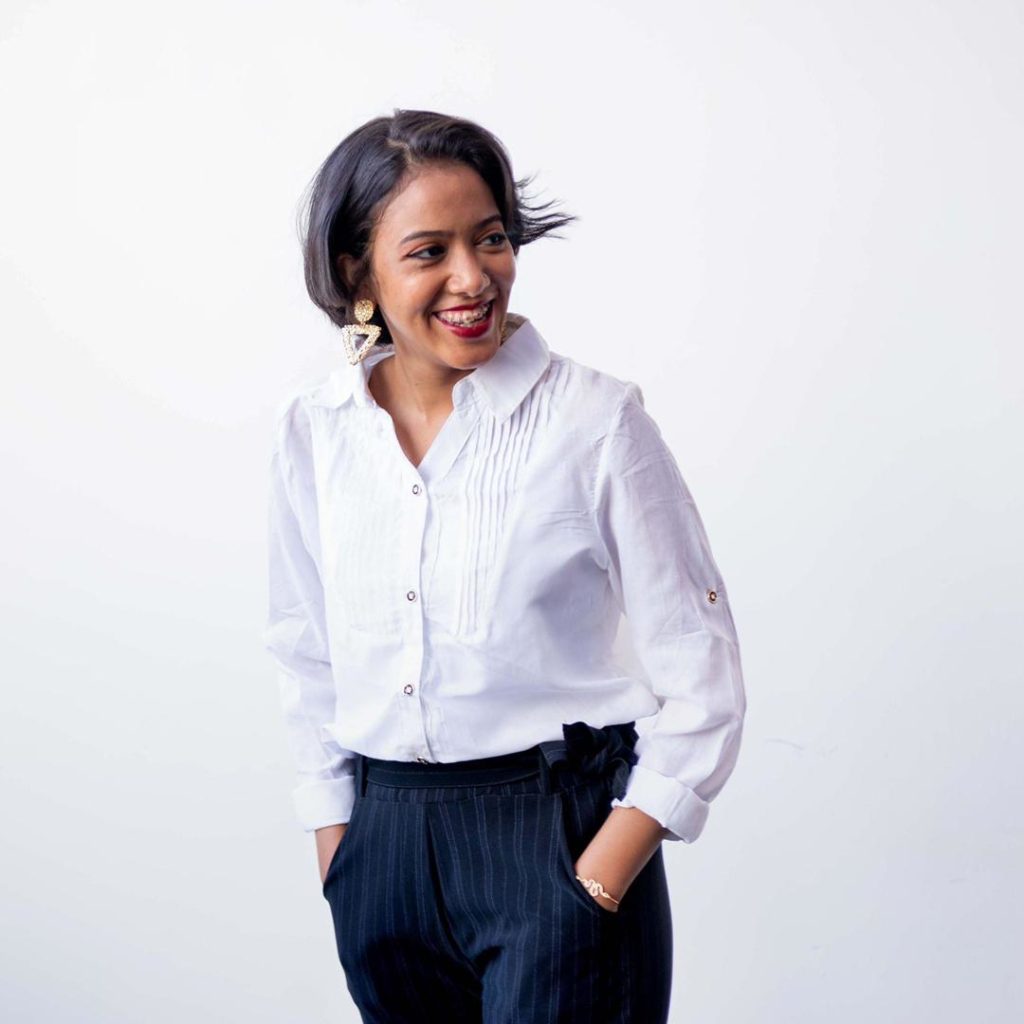
Leila has always been interested and engaged in creating opportunities for her community. One day on a local market in Khartoum, she saw Betoul sitting on a chair while knitting crochet. The woman made handmade hats for men. Leila thought to herself, how can these women turn their qualities to their advantage, for example by selling their products for a higher price and to a bigger market? While finishing off her bachelor degree programme in pharmacy, she spent her time off practicing art, such as photography (@Leila_suraj.gallery), painting and handcrafting. Creating her purpose from the comfort of her own room, Leila decided that day at the market to amplify the impact of disadvantaged women of limited income by renewing their products and creating a platform to show their handcraft products. Her social enterprise start-up, Sharkina, meaning “share with us” in Sudanese Arabic, is an invitation for women to selling their high-quality products to a bigger market and new target groups. OCHQ interviewed Leila to know more about Sharkina fostering social change in Sudan.
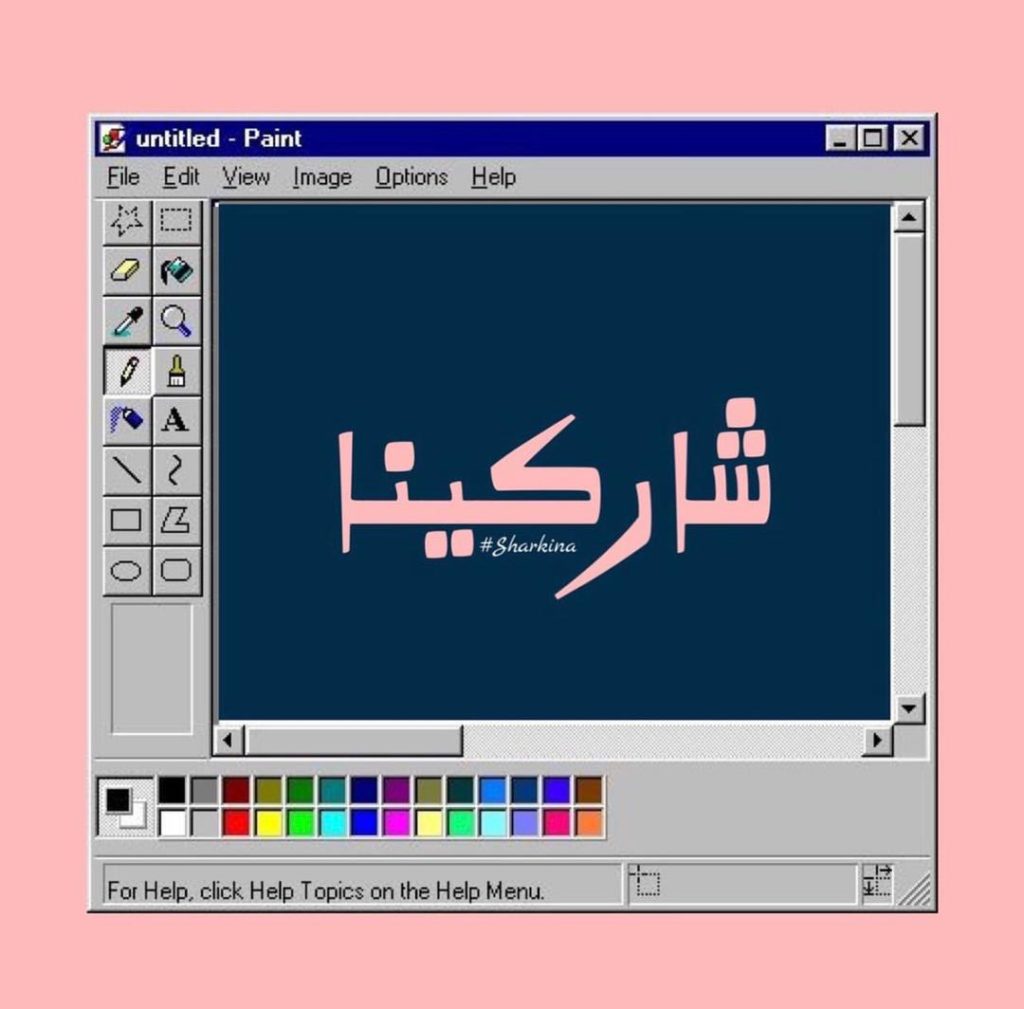
When did you officially started with the creation of Sharkina?
I have been working on Sharkina for one and a half years now, but it wasn’t until the Orange Corners programme I was able to truly implement my business plan. When I was a teenager, I used to be an introverted kid with vitiligo. I got bullied for it and couldn’t really manage to deal with my insecurity. I decided to isolate myself. On the long run I found my purpose, started to open up by practicing my passion and showing to world outside my window what I got. Being an artist and an entrepreneur, thus to create value for yourself and others is very empowering, even though it can be tough sometimes.
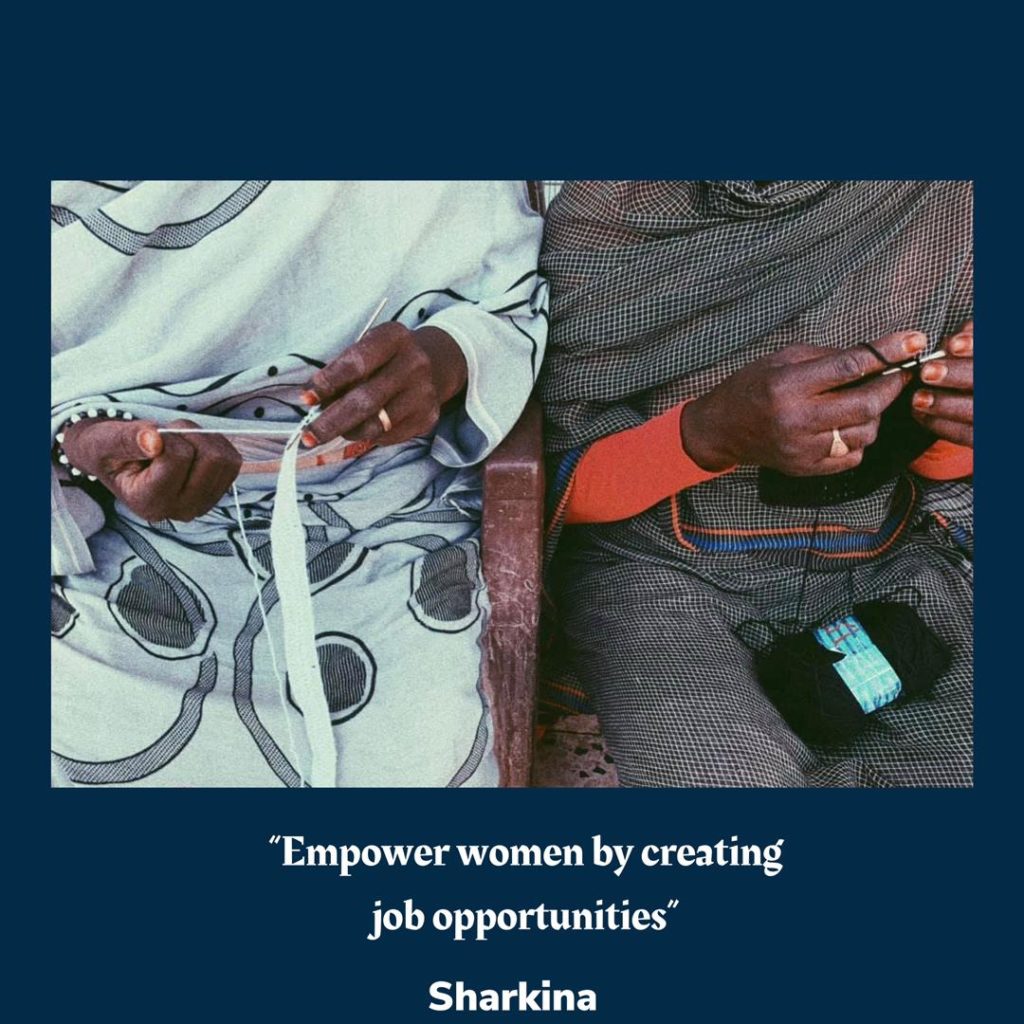
Could you tell us a bit more about your experience during the Orange Corners Programme?
“I had no idea how and if I would be able to implement my idea before the Orange Corners Programme. It was really heart-warming to see that my ambition to offer training to women could be realised. I got to meet other young female entrepreneurs who had similar ideas or encountered similar struggles. I didn’t hesitate for a moment when I saw the Facebook post of Orange Corners Sudan in 2019: I thought, this is it.”
In the first place I was not really thinking of making profit, before joining the Orange Corners Programme. It was crazy, but when I joined the Orange Corners Programme I got introduced to the principle of a social enterprise, where I can help vulnerable people in a way that is profitable without being a charity. The concept was very unfamiliar to me. Now I know that I can help others while supporting myself as well.”
Sometimes I think you just have to be patient with the whole process in order to prove your point of view and accomplish what you want to achieve.
What is the most challenging aspect of being an entrepreneur?
“There are many obstacles put in the way for females in Sudan. This can be from a personal, psychological to a financial level. These barriers restrict us to enter the business sector, to take initiative and underrates female participation in society. Nevertheless, women have the potential and eagerness to work for ourselves, managing their own business if only we would get more support, recognition and credibility for it. My start-up is, I believe, a great incentive for female empowerment, as it enables us to have a platform for ourselves and for the work we do. It would only be easier if the community would take us a bit more serious. But time will prove us right, female participation in the workforce is indispensable in today’s economy and world! It is mostly the young, brave and open-minded generation that are able to stand up for female rights and equality, as we provide the solutions for tomorrow.”
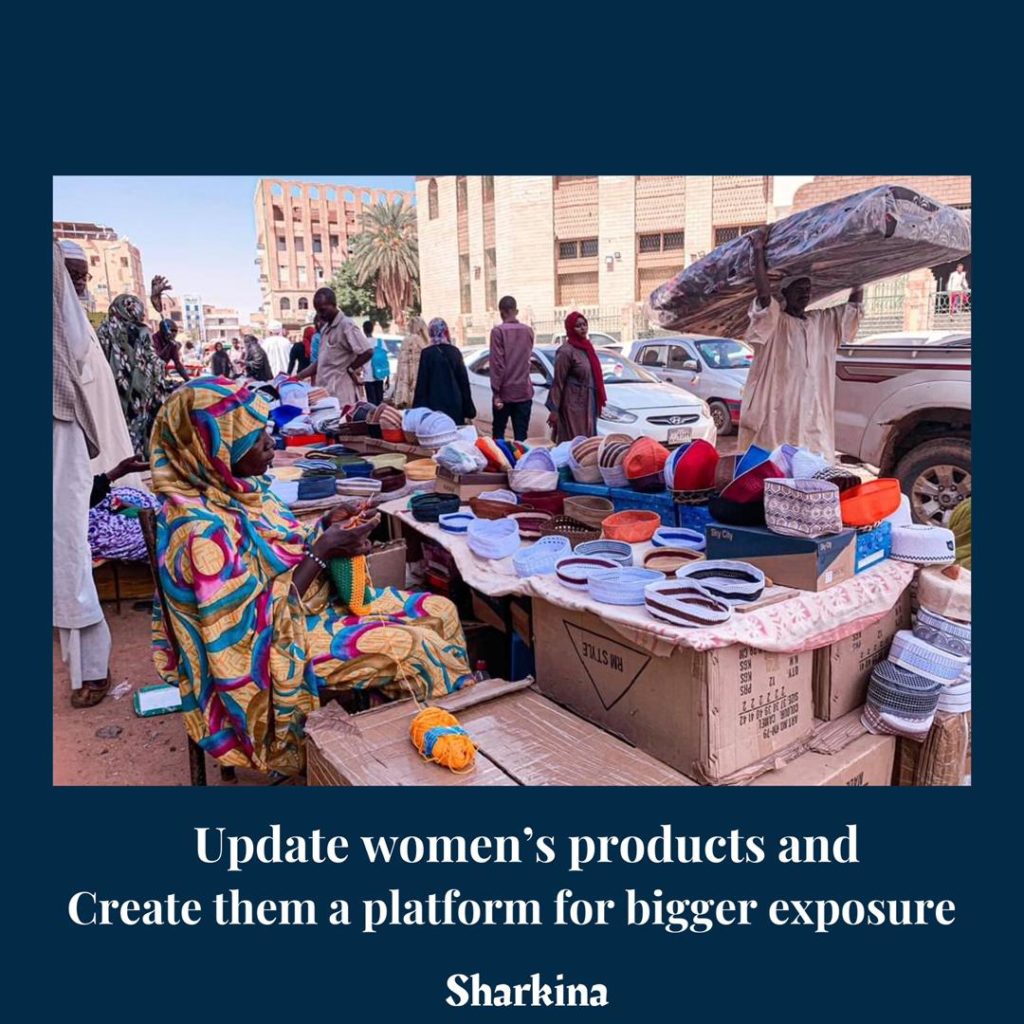
So you went your own way?
Yes! I have always been interested in photography and I gradually took it more seriously. It wasn’t just a hobby anymore. I realised that I could really generate money with it. Last year, I was selected for Africa France summit and 2021 calendar “12 Photographers celebrating Diversity in Sudan” of the Spanish Embassy and even more opportunities. During that time, my parents also started to notice that I received more opportunities in this field and that this is my passion. I get a lot of energy by networking with people, creating opportunities and looking after my future while creating financial stability. Sometimes I think you just have to be patient with the whole process in order to prove your point of view and accomplish what you want to achieve.
I had no clue how I would be able to implement and validate my idea before the Orange Corners Programme.
What are in your opinion the company’s strengths in relation to other companies?
Compared to other companies, Sharkina creates comfortable working environment for disables and marginalised women. So my social enterprise aims to empower these women by learning, creating together and exposing their products online. Most female workers specialised in handicraft don’t have that certain level of access: I give them the access. I work with widows, disabled females, females who suffer from traumas and/or demises in order to maximise their potentials and competencies. My aim is to export our local products, from masks, hats to handmade crochet cartoon dolls and others. It creates jobs and gives them financial independency.
Are people in need of the services the start-up offers? Is it applicable? Is it profitable?
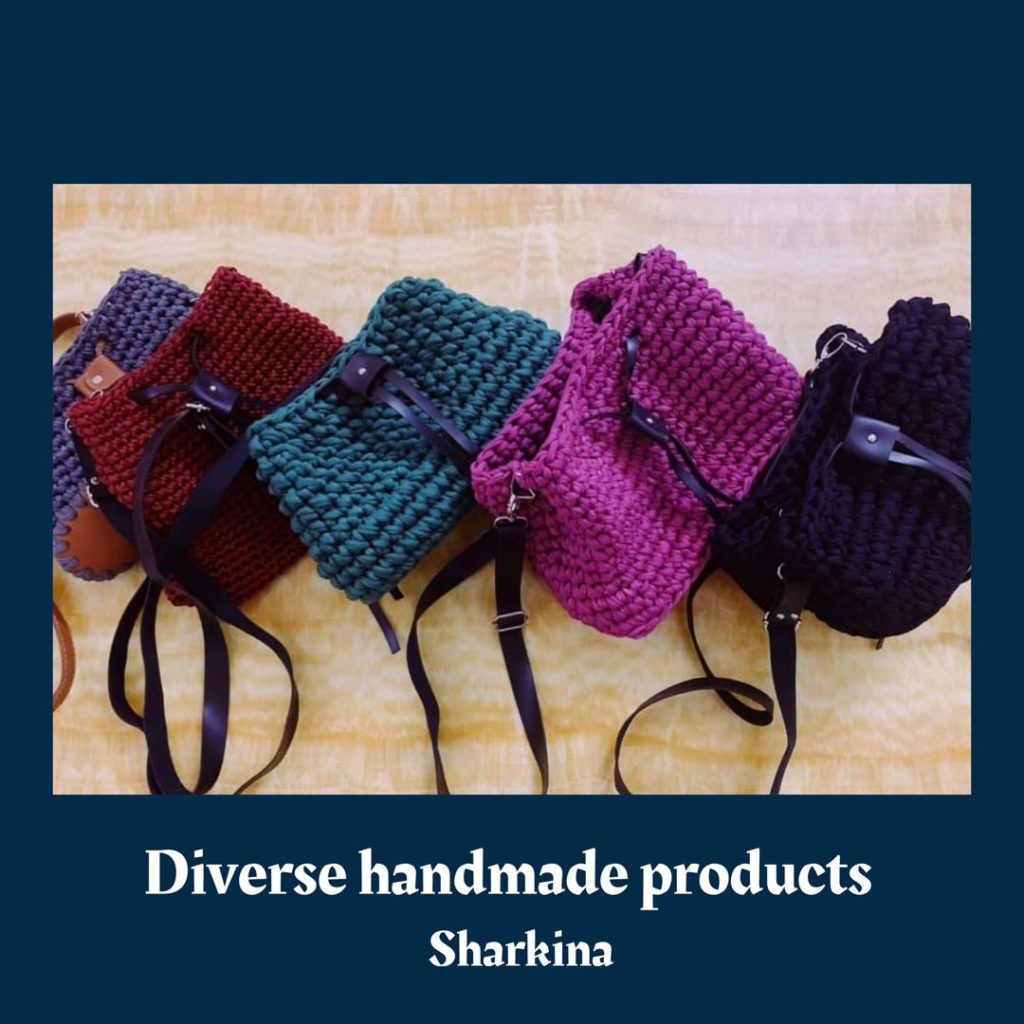
What is Sharkina’s entrepreneurial objective?
I see entrepreneurship as value creation with a social aim. I use the skills I have and try to inspire and motivate others. In that way, I not only try to make the best out of a situation for myself, but also for others. My concept is to create something similar to a charity because I wish to support disadvantaged women by giving them financials, material, more access to exposure and a higher quality of life.
What struggles did you encounter with starting your own business and how did you overcome it? How is it to be a female entrepreneur?
The struggle was real. The women I come across, are normally from a low educated background. It was difficult to explain the purpose of Sharkina to them, convincing them to join the startup and making them part of my journey. However, my MVP (minimum viable product) highly depends on the different means and products of these women as product differentiation is necessary for the total value and impact of the start-up.
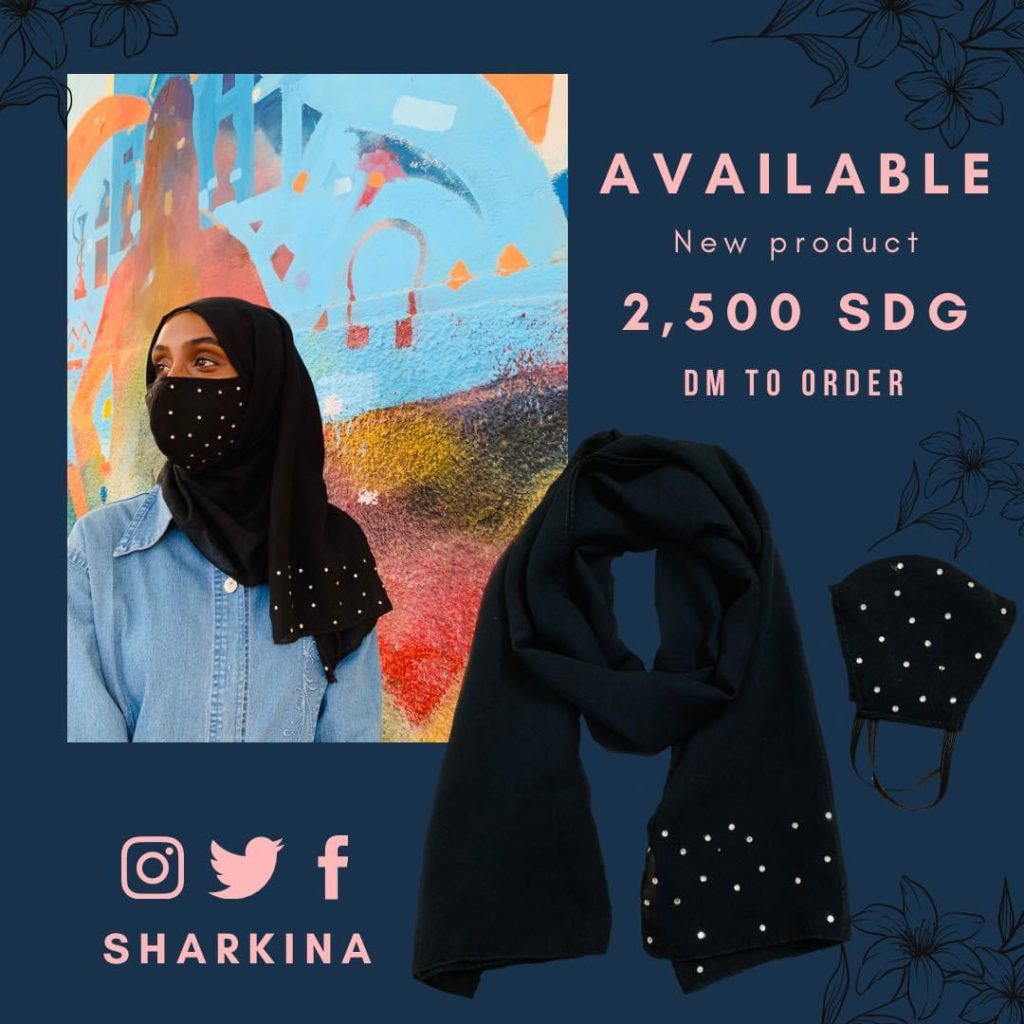
Where do want to wish to see Sharkina in 5 years?
In relation to my current accomplishments, which include expanding to different cities in Sudan, I aspire to enable women to become more independent. I want to include female workers and offer diverse products from a higher quality. In five years, I can see my start-up expanding not just outside Sudan but outside Africa as well. I would like women to obtain their own training and production centre, creating something for themselves and thus attaining a higher and better quality of life.”
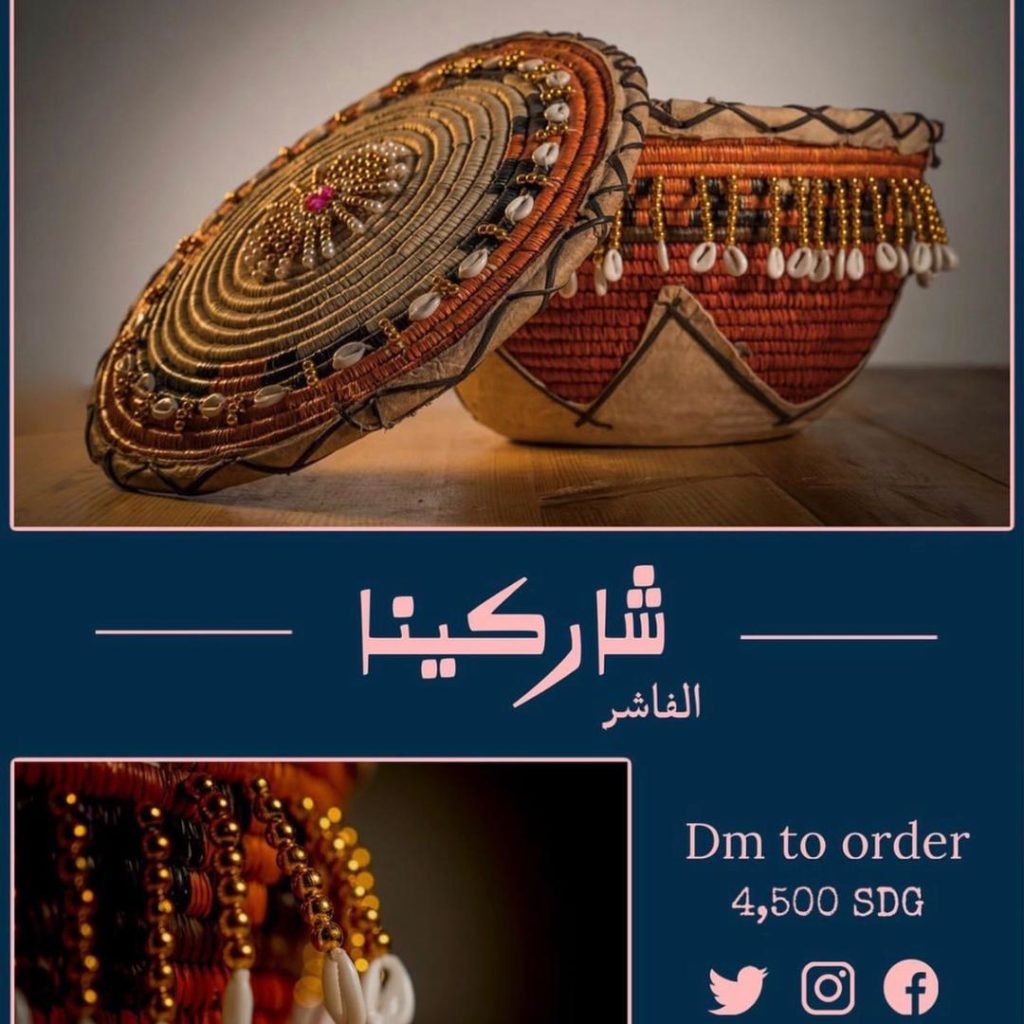
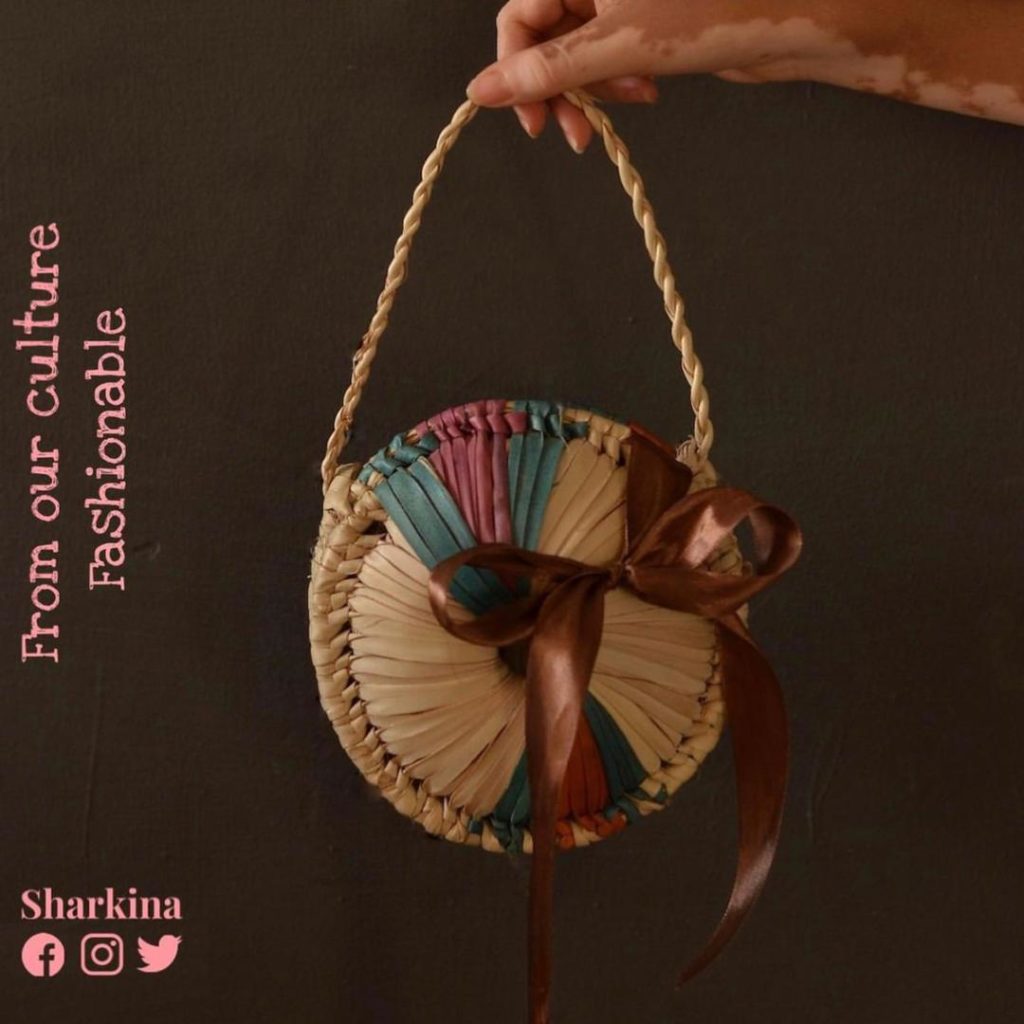
Could you give other aspiring entrepreneurs advice for their own business (ideas)?
My advice for other entrepreneurs would be, whenever, they have an idea, they should ask themselves a few questions that will help them comprehending the ideas they have in mind: are people in need of the services the start-up offers? Is it applicable? Is it profitable? Once they are capable to provide the answers of these questions, you are ready to join the market and test out if it works.
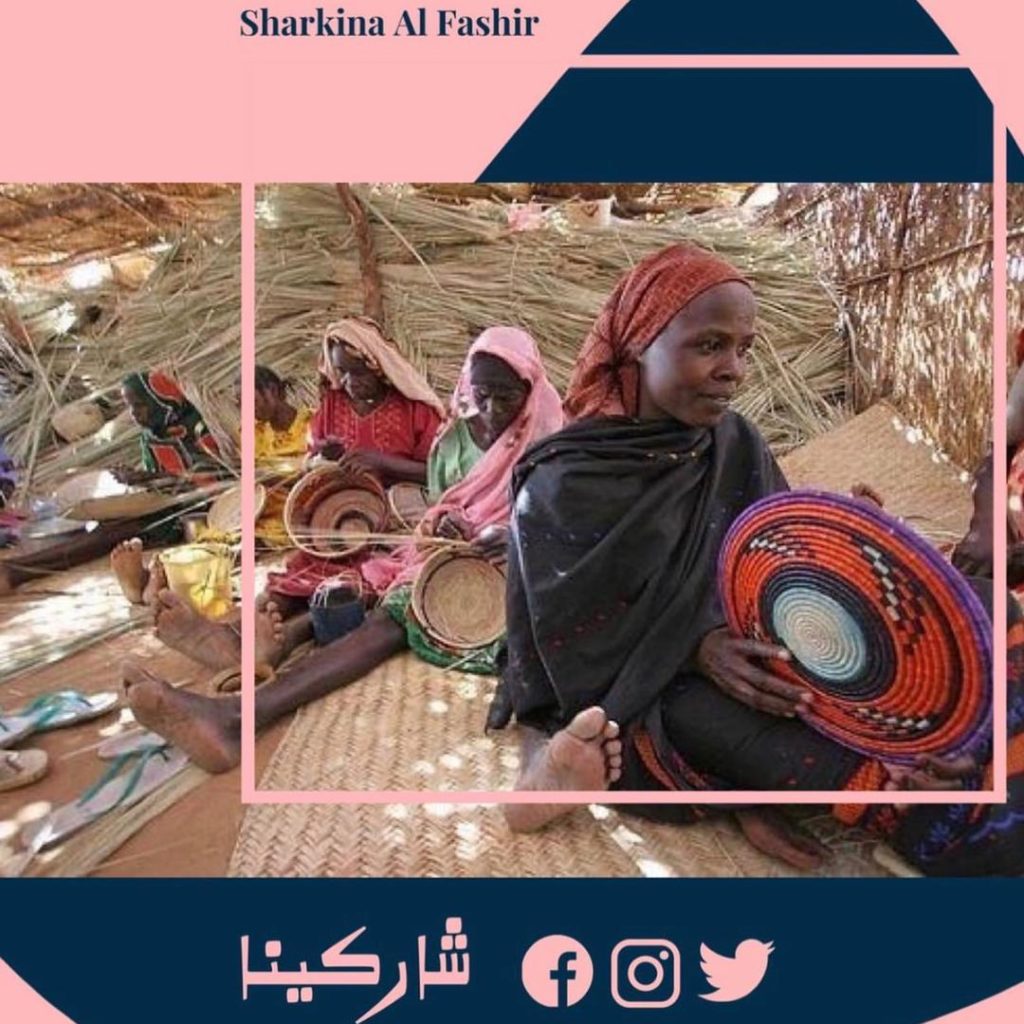
Being an artist and an entrepreneur, thus to create value for yourself and others is very empowering, even though it can be tough.
What other advice would you give to aspiring or current entrepreneurs?
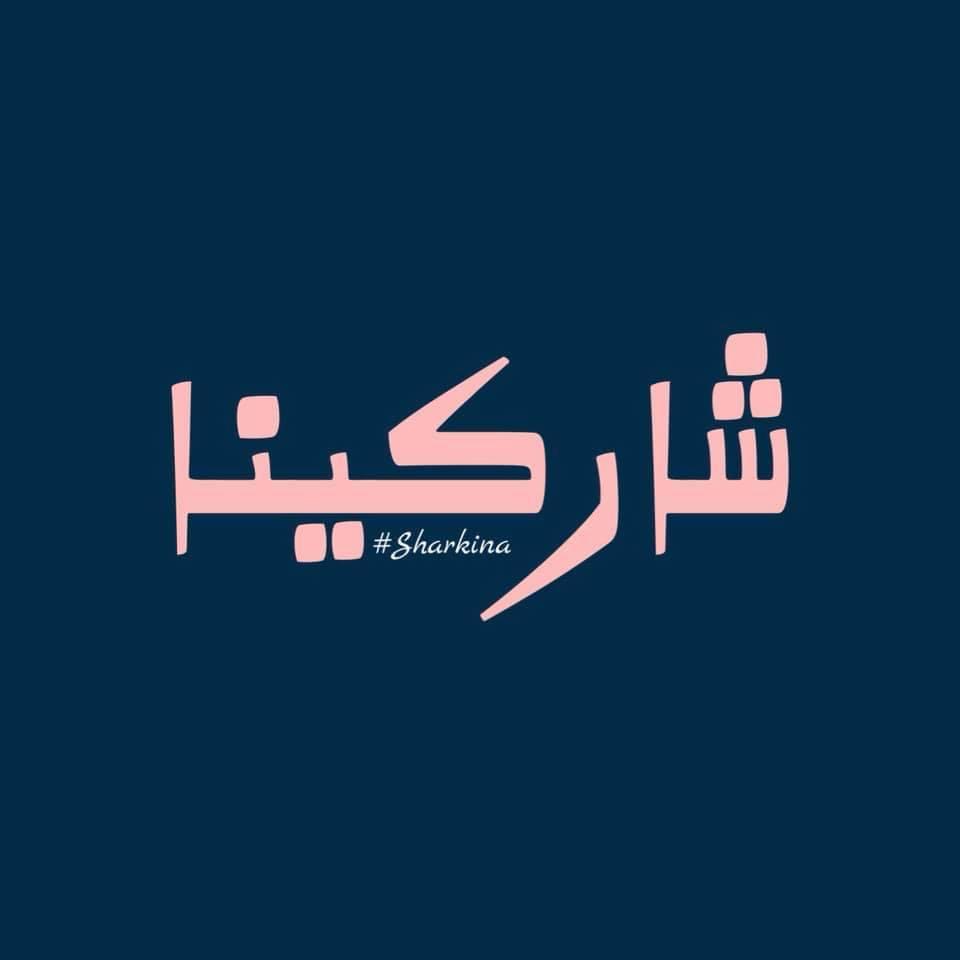
Engage yourself in a community that have similar interest or face similar problems as you, it will help you to share the experiences you face, brainstorm together and negotiate. Look at your start-up, your problems, and challenges from different angles and ask people for advice. That helped me with my start-up. Last but not least, It is okay to fail, you can always learn from your mistakes and start over again with a fresh view of the bigger picture.
Facebook: https://www.facebook.com/SharkinaSudan
Instagram: https://www.instagram.com/sharkina.sd/
Last but not least, It is okay to fail, you can always learn from your mistakes and start over again with a fresh view of the bigger picture.

